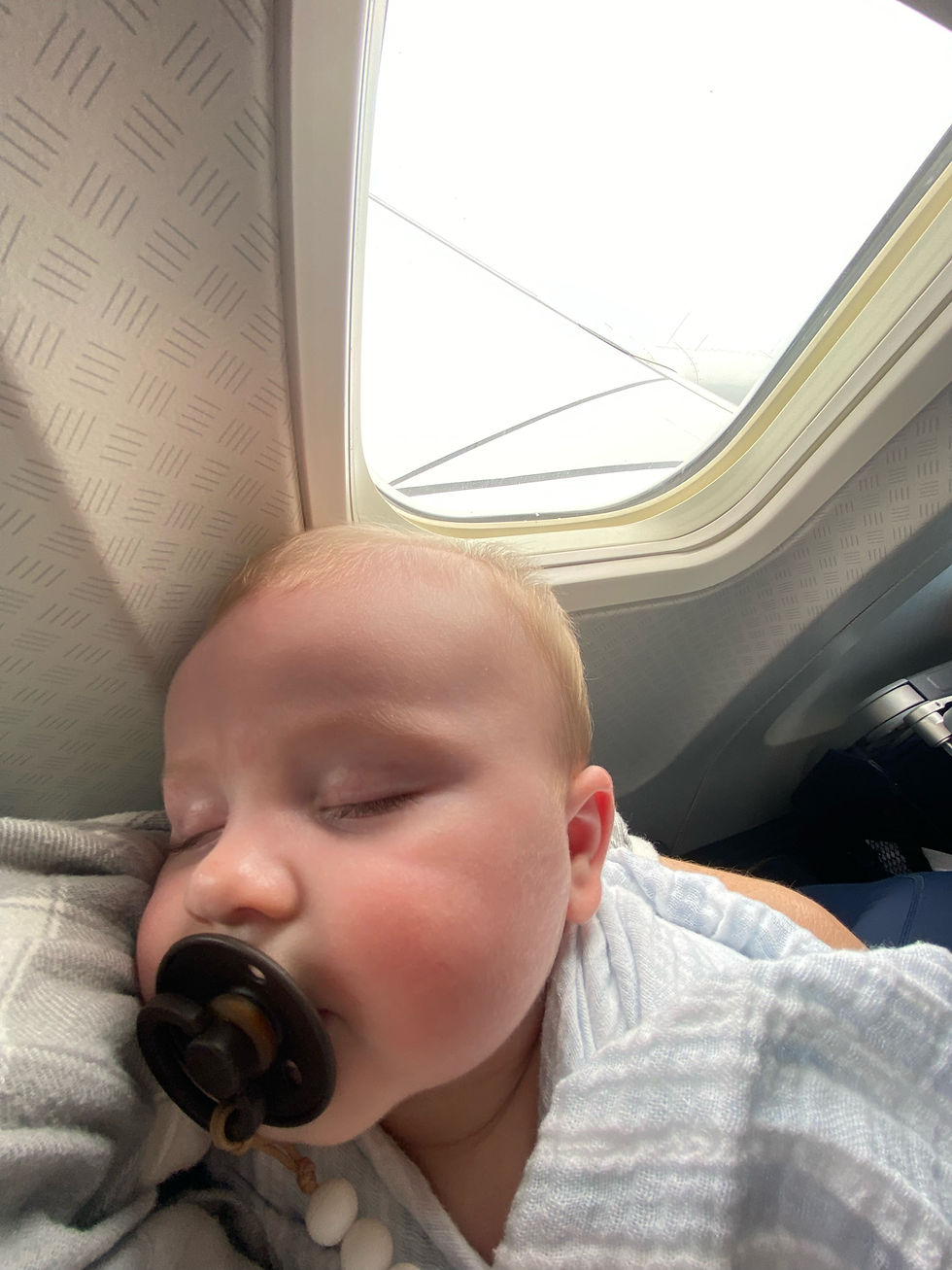Discomfort Due to Gas: What You Need to Know for Gas Management
- redmondkaela
- Jul 28, 2025
- 4 min read
Updated: Sep 16, 2025
Understanding Gas:
Gas is just built up air that needs to be released. Conquering gas will lead to:
Successful Feeds
Restful Sleep
Happy Babies
Keys to Successful Gas Management:
MOVEMENT: daily
MONITORING: responses to diet when breastfeeding and responses to formula when bottle feeding.
LATCH: for both breast and bottle feeding
BURPING: offered multiple times throughout feeds
SELF SOOTHING: allow for and aid in preferred techniques
Movement
There are many great ways to introduce both active and passive movement!
For active movement, have your baby move freely. This can be done on a mat, on a blanket on the ground or even under a play gym and provide toys that let them practice reaching or grasping. In addition to free movement, you can go a step further and intentionally place them on their belly during these bouts of active movement. Note- they may need to work on endurance. In this case, make it a goal to do a few sets of 5 minutes throughout your day. It doesn't all need to be done at once.
For passive movement, simply move their limbs for them! Great examples are bicycle kicks and moving their legs, at the same time, as if they were performing a leg press! When it comes to moving their arms, you can lift one overhead as if they are raising their hand and gently release back to center. Repeat on the other side. These exercises don't have to be a daunting daily task added to your to do list. Especially when your baby is so young, there might not be a lot of free time where they are awake and not eating. An easy way to get them in is if you go through a few while you're changing their diaper.

Monitoring
Are you breastfeeding and feel like you have tried everything but still can't get rid of gas? Keep a food log while taking note if the gas is worse after eating something like dairy or gluten. Be mindful that some foods, like broccoli, are just harder to digest!
Are you utilizing formula and feel like no matter what lengths you go to, your baby is constantly struggling with gas? Try switching to a formula that is going to be easier for them to digest. Worried about breaking the bank? Stores like Target have generic brands of "sensitive" or "gentle" formula to choose from.
Latch
A good latch can be a game-changer! It can set you up for a more successful feed because your baby isn't having to work extra hard to eat. Also, it will limit taking in unwanted air that could potentially lead to painful gas. Most importantly, a good latch is necessary when breastfeeding AND bottle feeding.
What does a good latch look like?
You want your baby's top and bottom lip to be puckered or positioned where they are curling out instead of getting stuck tucked in or under. If you notice your baby's lips are curled in, you can manually flip them out to a puckered position with the sweep of a clean finger. Also, when bottle feeding, some bottles and nipples are much better at helping to prevent gas! Look into Dr. Brown bottles if you haven't already!
Burping
Not all babies are great at burping and that's okay. Sometimes that means they don't have a lot of gas, so that's great. Other times, it's because we aren't burping them appropriately or frequently enough. Finally, it may be because your baby gets their gas out of the other end (in toot form!) We don't care how they clear their gas, as long as it comes out.
How often should I burp my baby?
A good place to start is in the middle of the feed and at the end. Otherwise, paying attention to occasions when your baby is slowing down. Sometimes, this is their communication or cue that they have gas or need to burp. However, be mindful that if you burp your baby frequently throughout a feed, you may be introducing more gas because every time you break their latch they are taking in air that can turn into gas. It's a delicate balance!
Self Soothing
Best Case Scenario? Your baby uses their fingers to self soothe.
Often, this just isn't the case, and you need a pacifier. Sucking is a natural reflex which will illicit their ability to calm. Use the pacifier only when they need it and once they are relaxed TAKE IT AWAY! Try tilting it at an angle rather than pulling it straight out. ( Try different pacifier brands if your baby is picky. I promise you will find one that works!)
A common issue, especially when changing a diaper before a feed, is if your baby is excessively crying, they are taking in a lot of air. Air translate to gas. Feeding on top of all this air can create extreme discomfort as they are digesting the feed. My first recommendation is to offer a pacifier during these diaper changes to help avoid the accessive air intake.
If this happens often, you may try asking your pediatrician if they recommend gas drops
(simethicone) and or a probiotic. Key point, do not offer your baby any medication/supplement before you receive confirmation from your pediatrician.
*This input is a concise, all encompassing synopsis. If you are struggling to find more effective ways to manage your baby's gas, please reach out for a more detailed/personalized approach.
*Note- If you are noticing extreme bouts of gas, changes in stool consistency and/or color, or excessive spitting up, please consult your pediatrician for a more thorough assessment and potential diagnosis.
Explore More from Fourth Trimester Training:










Comments